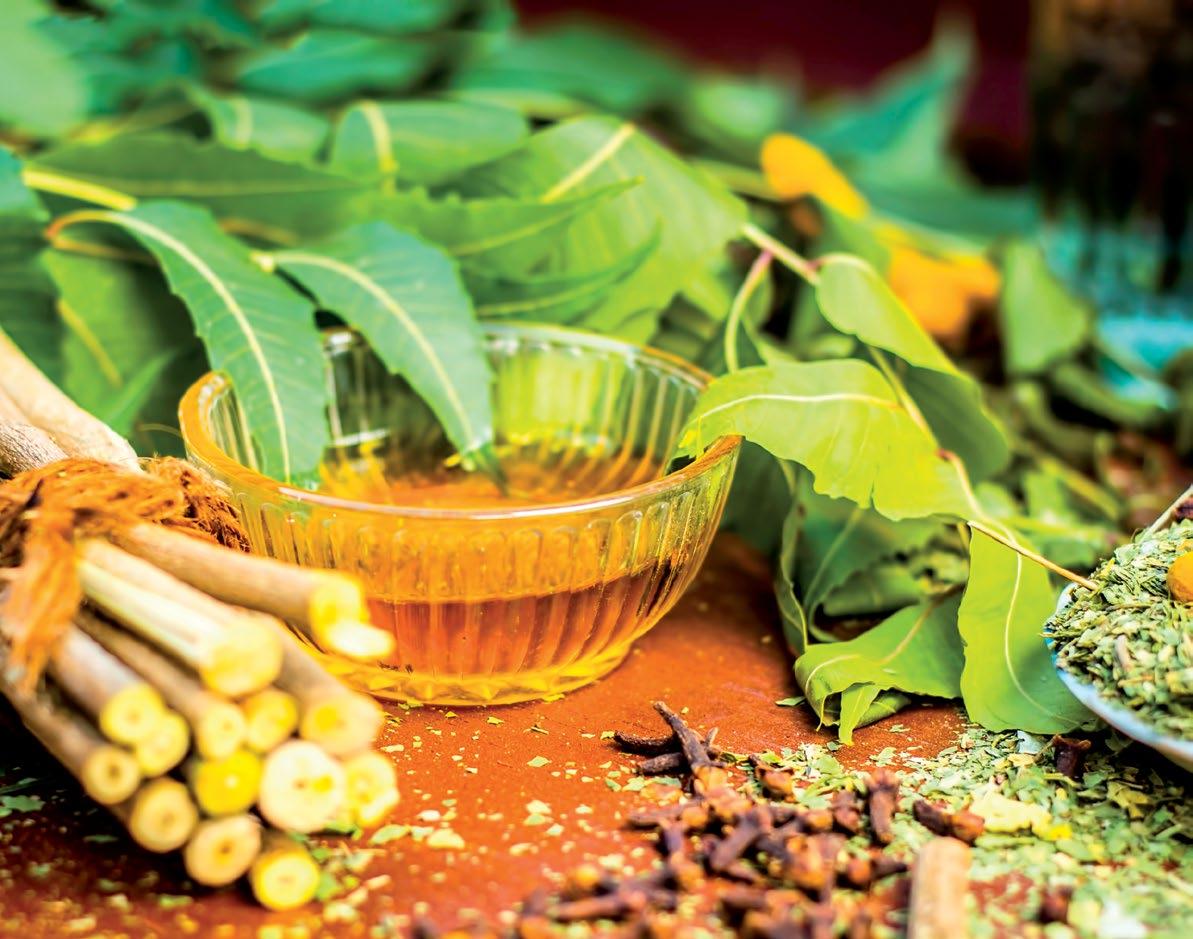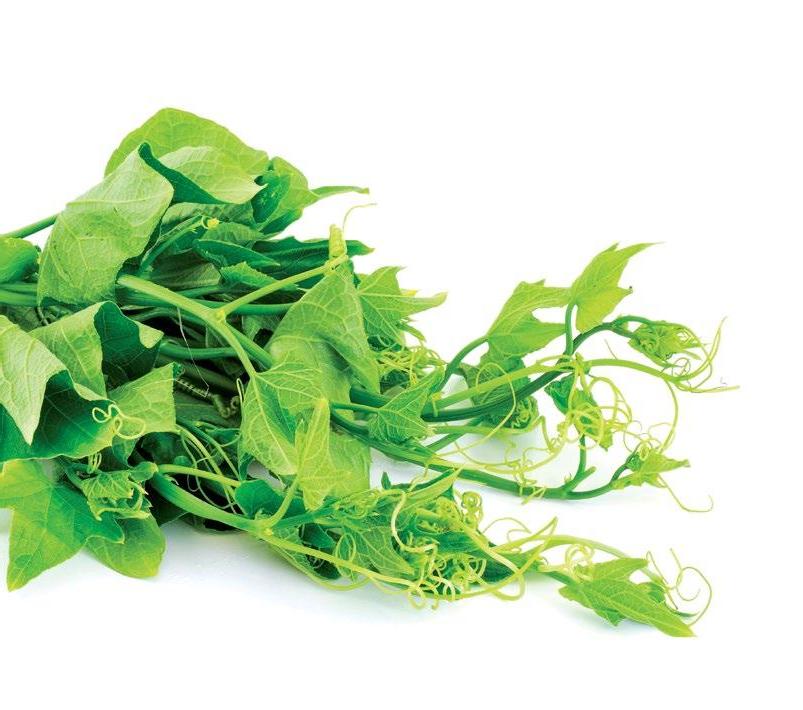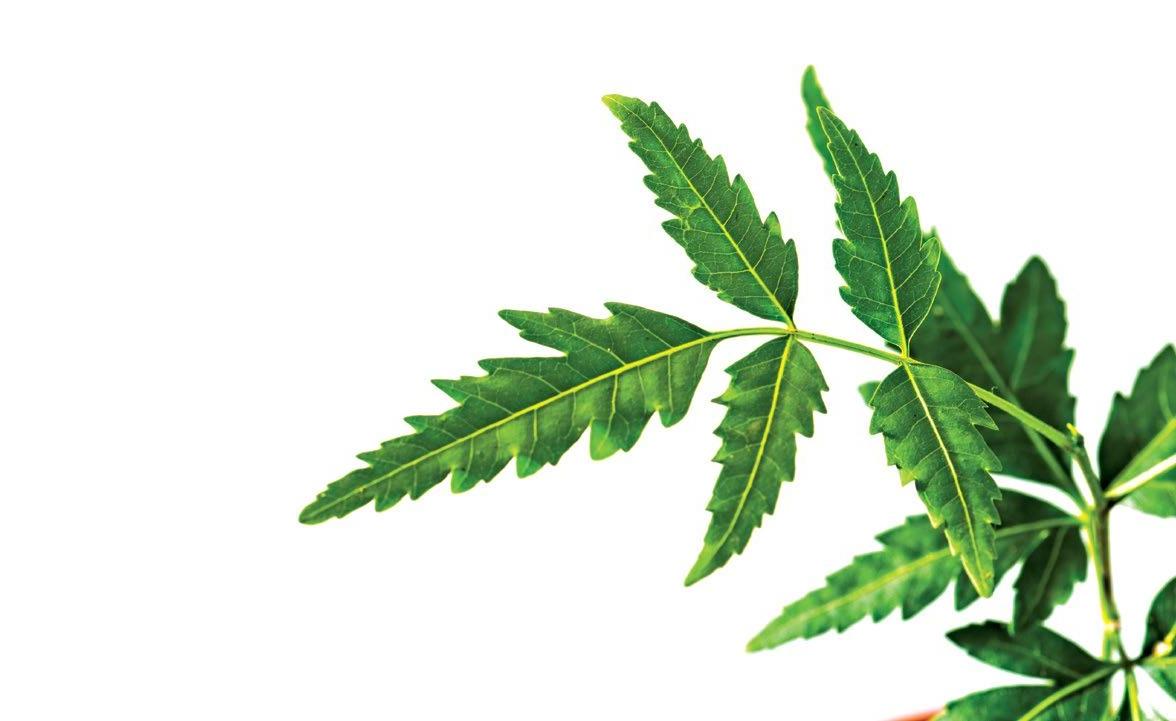
3 minute read
HEALTH & BEAUTY
BUSH TEA REMEDIES
WRITER REBECCA HUGH PHOTOGRAPHY SUPPLIED
Advertisement
THE TRADITIONAL CARIBBEAN “BUSH” remedies of our grandparents seem ever more appealing in these uncertain times. While a strong immune system is one weapon in the war against illness, conventional supplements have been coming under fire for the amount of additives they contain. Warm herbal elixirs offer nostalgic and soulful comfort, as well as a boost of body-loving nutrients. Here’s a look at some essential Caribbean all-natural salves, their potential health benefits and risks.
Soursop Leaves
• A favorite of Caribbean kids everywhere, the sweet guanábana or soursop fruit is as nutritious as it is delicious, packed with immune-boosting vitamins B and C as well as calcium and potassium. Aside from the sweet nectar of its fruit, the leaves of the soursop tree are also purported to have remarkable health benefits. Most often made into tea, the leaves aid in calming several ailments related to the digestive system, including constipation, hemorrhoids and gallbladder problems. Keeping your gut happy is crucial to maintaining overall immune health. As a cautionary note, excessive consumption is linked to nerve damage, which presents as tremors or stiff muscles. Also, the seeds should never be consumed due to their toxicity.
Lemongrass

• A longtime staple in South Asian cuisine and medicinal remedies, lemongrass is better known to some Caribbean folk as fever grass, named as such for its feverreducing properties. Rich in natural antioxidants, tea brewed from lemongrass stalks is used to alleviate some cold and flu symptoms, such as coughs and headaches. The tea also acts as a digestive aid, known to relieve bloating, stomach cramps and constipation. The roots of fever grass can be made into a tea and used as a mouthwash for gum problems and periodontal disease. Like everything else, however, moderation is key. Drinking an excessive amount of lemongrass tea can cause stomach aches.
Cerasee

• Whether growing along the side of a country road or neatly packaged for sale in grocery aisles, cerasee (known to Haitians as asosi) remains a bush tea staple for islanders. Native to Africa, the herb is known as a natural detoxifier, containing vitamins A and C as well as phosphorus and iron. The popular leaves have traditionally been drawn in a hot beverage sipped to calm symptoms of hypertension, diabetes, liver problems, fever and constipation. It is also claimed to reduce menstrual pain and urinary tract infections. An old school cerasee “bath,” where the leaves are steeped in hot water, has been used to soothe skin irritation caused by conditions like eczema. When it comes to consumption, however, experts warn that prolonged and continual use could possibly lead to liver damage, so caution is advised.
Neem

• They say whatever tastes bitter must be good for you. By those standards, the benefits of neem tea offer strong testament. Commonly known as Indian lilac, neem is consumed as a tea throughout the West Indies and has become an Ayurvedic essential. The plant is high in antioxidants and possesses natural anti-inflammatory and anti-bacterial properties. Drinking neem tea is believed to help with a variety of conditions, including fever, diabetes, liver problems, constipation, bloating, and stomach and intestinal ulcers. Like many other natural remedies, however, drinking neem tea for a prolonged period can affect the kidneys and liver.
It is important to keep in mind that natural ingredients vary in potency and can affect individuals or interfere with medical treatments in unexpected ways. With this in mind, please consult your physician before making any dramatic changes or additions to your diet regimen.

